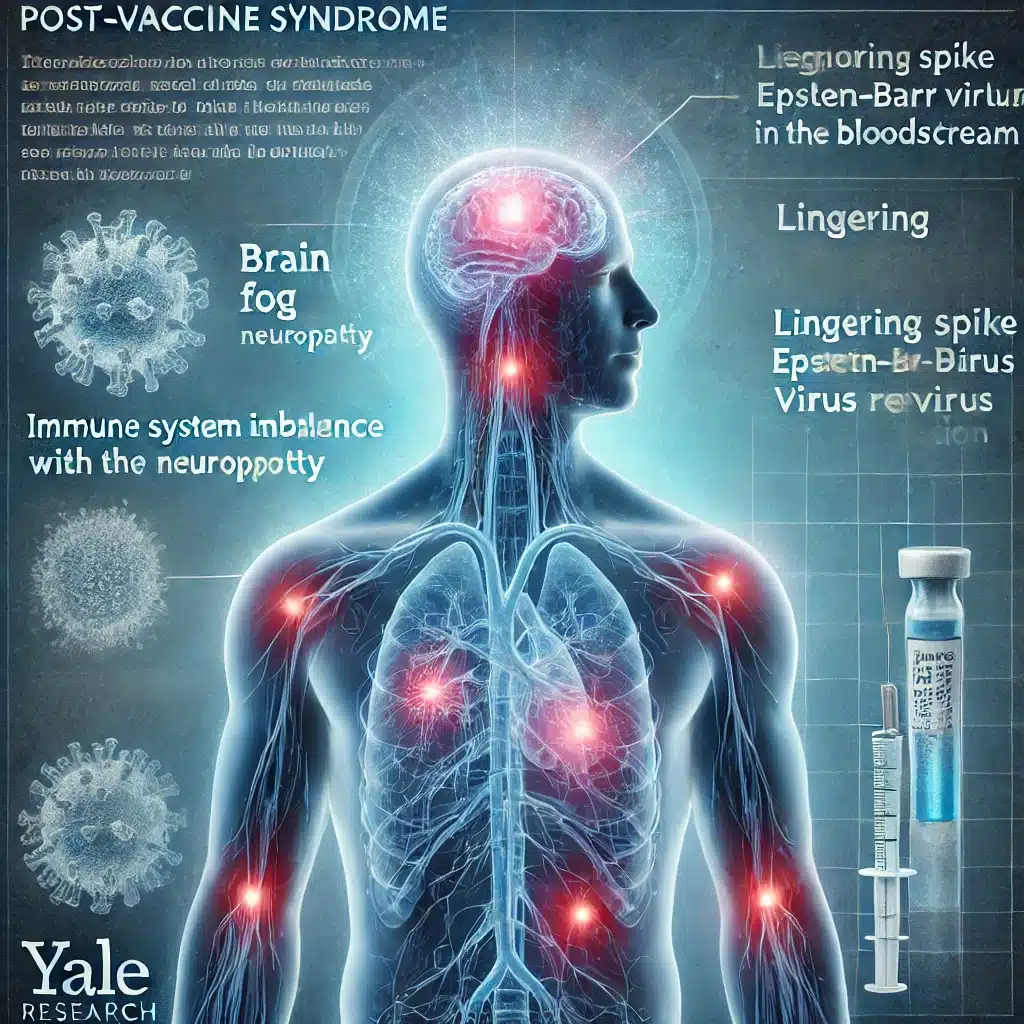Recognizing Post-Vaccine Syndrome
Recent research from Yale University has acknowledged the existence of post-vaccine syndrome, a condition affecting individuals following COVID-19 vaccination. While this syndrome remains unrecognized by most medical authorities, growing scientific evidence suggests that some people experience prolonged symptoms similar to chronic illnesses.
The study, titled Immunological and Antigenic Signatures Associated with Chronic Illnesses after COVID-19 Vaccination, sheds light on the mechanisms behind this condition and its challenges.
The Role of the Immune System
The immune system plays a crucial role in defending the body against infections. Still, it can sometimes become overactive or misdirected, leading to unintended consequences. Researchers have found that individuals suffering from post-vaccine syndrome show signs of immune system imbalance.
Their bodies exhibit increased levels of inflammatory markers and reduced numbers of CD4 T-helper cells, which are essential for immune regulation. This suggests that the vaccine may, in some cases, trigger an autoimmune response, causing the immune system to attack the body’s own tissues.
Persistent Neurological Symptoms
A significant number of individuals with post-vaccine syndrome report neurological symptoms, including brain fog, difficulty concentrating, tingling sensations, and neuropathy. Scientists have identified that lipid nanoparticles in the vaccine can cross the blood-brain barrier.
This protective layer prevents typically harmful substances from entering the brain. Once inside, these particles may cause the body’s cells to produce spike proteins, triggering an immune response against the nervous system.
The Connection to Epstein-Barr Virus Reactivation
Epstein-Barr virus, which causes infectious mononucleosis, is present in a dormant state in many people. However, researchers have observed that post-vaccine syndrome patients have a higher likelihood of Epstein-Barr virus reactivation.
This reactivation can lead to extreme fatigue, muscle weakness, and persistent inflammation, further complicating the health of affected individuals. The immune system’s struggle to regulate itself may contribute to this viral resurgence.

The Presence of Spike Protein for Over 700 Days
One of the most concerning findings from the Yale study is the prolonged presence of spike protein in the blood of post-vaccine syndrome patients. Some individuals have been found to still have detectable levels of spike protein in their system more than 700 days after vaccination.
This prolonged immune response may contribute to the chronic symptoms observed in these individuals. While more research is needed to fully understand the long-term implications, this discovery raises questions about the body’s ability to clear vaccine-related components over time.
The Need for Medical Recognition and Treatment
Despite mounting evidence, the urgency of recognizing post-vaccine syndrome cannot be overstated. This condition is not officially recognized by most medical organizations, leaving affected individuals without proper diagnosis or treatment options.
Many patients report being dismissed by healthcare providers or told their symptoms are unrelated to vaccination. However, the Yale researchers emphasize the importance of acknowledging these cases, conducting further studies, and exploring treatment options that may help those suffering from this condition.
Denial Isn’t A River in Egypt
Although post-vaccine syndrome remains a complex and largely misunderstood condition, the potential for future research provides hope for affected individuals. The medical community has to stop denying the overwhelming evidence for this and other vaccination syndromes. As open-minded scientists continue to investigate the underlying causes, potential treatments may emerge that can help manage or even alleviate symptoms. The recognition of post-vaccine syndrome by medical professionals will be crucial in ensuring that patients receive the care they need.
As awareness of post-vaccine syndrome grows, it becomes increasingly important to understand the long-term effects of vaccination. The hope is that scientific and medical communities will work together to develop solutions that address the needs of affected individuals.
This understanding is essential in shaping future public health decisions and ensuring patient well-being.
Citations
- Immunological and Antigenic Signatures Associated with Chronic Illness After COVID-19 Vaccination, Yale University, 2024.
- Epstein-Barr Virus Reactivation in Post-Vaccine Syndrome, Journal of Virology, 2023.
- Neurological Impact of Lipid Nanoparticles in Vaccination, Neurobiology Research, 2023.









